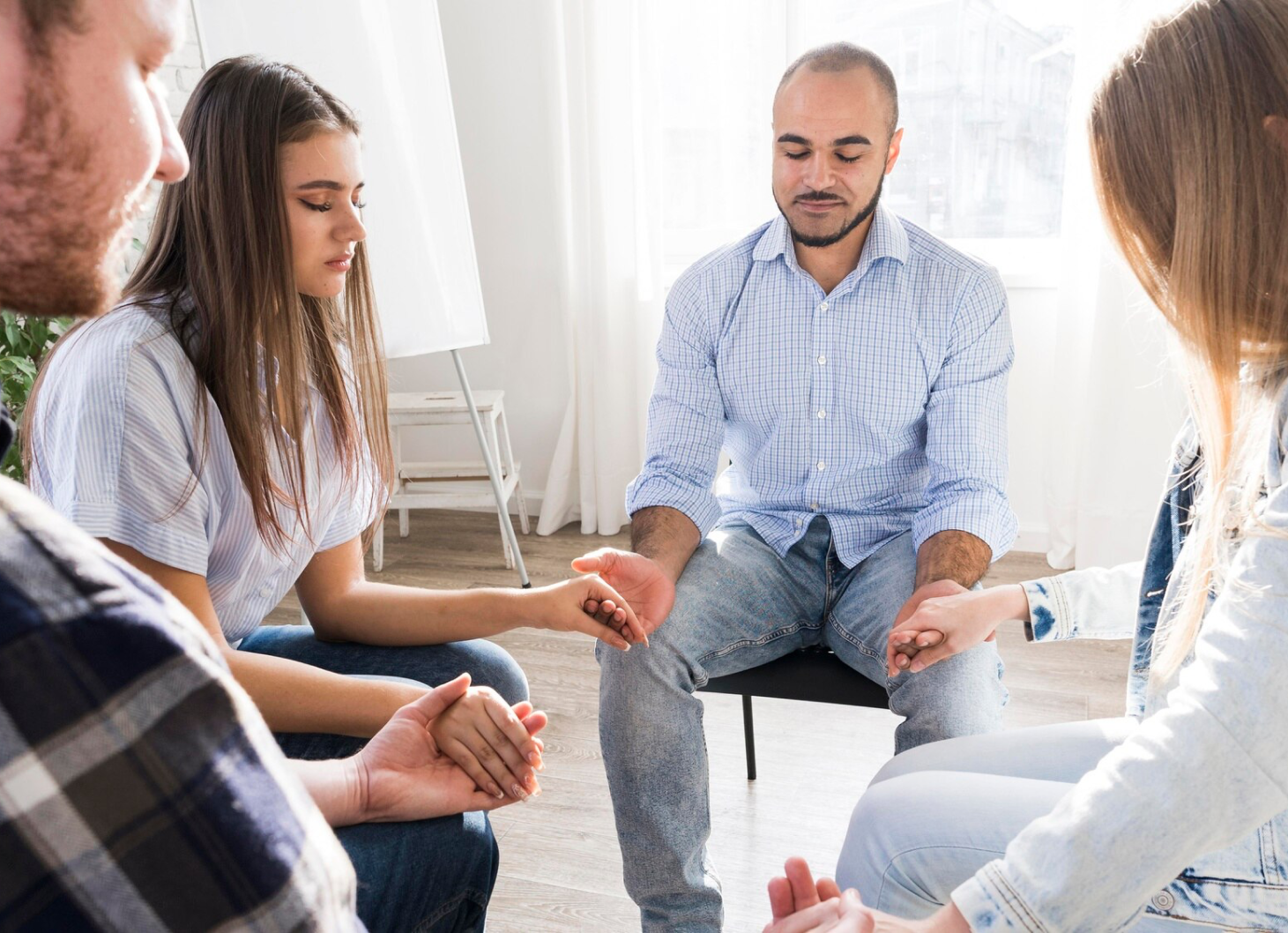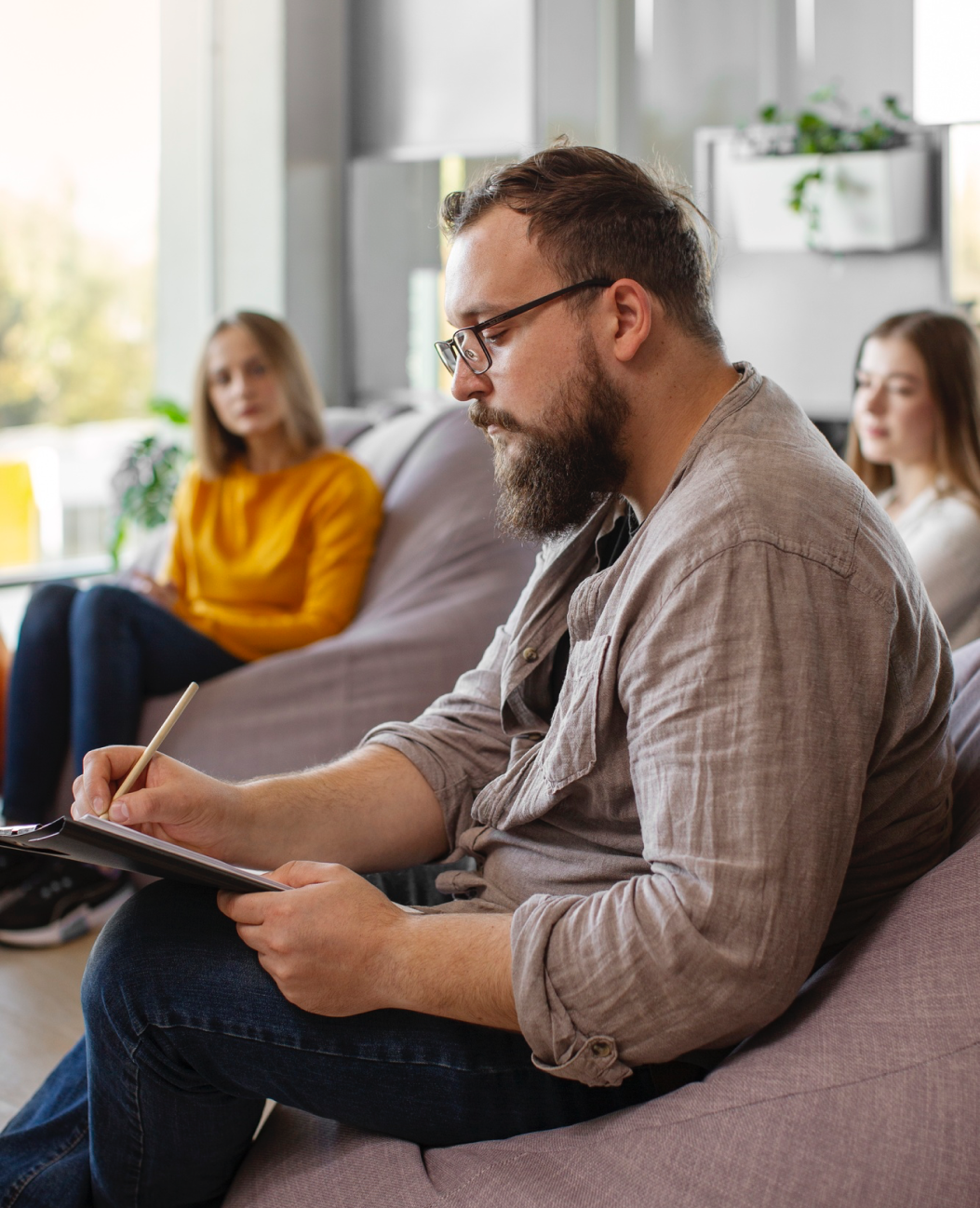
Group therapy is a cornerstone of effective treatment for mental health and substance use challenges, offering unique benefits for recovery. This powerful approach brings together individuals facing similar struggles, creating a supportive environment where participants can share experiences, gain insights, and learn from one another. For those grappling with mental health issues or substance use disorders, group therapy provides a vital sense of community and belonging, combating feelings of isolation and shame that often accompany these challenges.
- Cognitive-Behavioral Therapy
- Motivational Interviewing
- Contingency Management
- Psychodynamic Therapy
- DBT
- 12-Step Facilitation Therapy
- Interpersonal Therapy
- Mindfulness-Based Therapy
- Art Therapy
- ACT
- Play Therapy
- Individual Therapy
- Holistic Therapy
- Group Therapy
- EMDR
- Family Therapy
- Trauma-Informed Care
What is Group Therapy?
Group therapy is a therapeutic approach that involves a small group of individuals who meet regularly to discuss their experiences, challenges, and goals under the guidance of a trained therapist.[1] This form of therapy is widely used for both mental health issues and addiction recovery.
In mental health settings, group therapy allows individuals to share their struggles with conditions such as depression, anxiety, and trauma while receiving support and feedback from peers who may be facing similar challenges. For addiction recovery, group therapy offers a structured environment where individuals can address their substance use issues, learn from others’ experiences, and build a sense of community and accountability.
Incorporating group therapy into holistic care is particularly beneficial for fostering a supportive environment where people can feel understood and less isolated in their recovery journey. For example, Able to Change Recovery integrates group therapy as a core component of its holistic approach to treatment, recognizing that personal growth and healing are often enhanced by the shared experiences and collective wisdom of a group.
By engaging in group sessions, clients gain valuable insights, develop coping strategies, and build strong support networks that complement individual therapy and other aspects of their recovery plan. This collaborative approach not only aids in the healing process but also empowers individuals to sustain their progress and achieve long-term recovery.
How (and Why) Group Therapy Works
Group therapy leverages the power of interpersonal interactions to facilitate healing and personal growth. The therapeutic process within a group setting often involves members sharing their personal experiences, discussing their challenges, and providing support to one another. This collective approach works for several reasons:[2]
- It offers participants a sense of community and reduces feelings of isolation as individuals realize they are not alone in their struggles. Hearing others’ stories and receiving feedback can foster a sense of validation and empathy, which are crucial for emotional healing.
- Group therapy promotes self-awareness and personal insight. As individuals interact and listen to others, they can gain different perspectives on their own issues, which can lead to new understandings and solutions. The diverse range of experiences and viewpoints within the group can challenge entrenched patterns of thinking and behavior, encouraging participants to adopt healthier coping strategies.
- Group therapy also allows for role modeling, where members can observe and learn from others’ progress and setbacks, thus enhancing their own recovery process.
The structure of group therapy sessions, which often include structured activities, discussions, and therapeutic exercises, helps to create a supportive and dynamic environment.[3] The therapist’s role is crucial in guiding these interactions, ensuring that the group remains focused and that every member’s voice is heard. This structured yet flexible setting not only provides a framework for addressing individual issues but also builds collective resilience and accountability.
The Efficacy of Group Therapy
Research has consistently demonstrated that group therapy is a highly effective method for treating a wide range of psychiatric and behavioral disorders. Studies have shown that group psychotherapy can be as effective as individual therapy for conditions such as anxiety, depression, grief, eating disorders, and schizophrenia.[4] The collaborative nature of group therapy for depression, anxiety, PTSD, anxiety, and other conditions not only helps reduce symptoms but also provides participants with a sense of belonging, purpose, and hope. This kind of support fosters altruism and meaning throughout the treatment process, enhancing overall outcomes.
There is also substantial research evidence supporting the efficacy of group therapy, specifically for substance use disorders (SUD)l. Group therapy for SUD has been shown to be effective in helping individuals address their addiction, develop coping skills, and build supportive networks.[5] This peer support and shared accountability in group therapy for addiction plays a crucial role in promoting long-term recovery and reducing the likelihood of relapse.

What to Expect from Group Therapy



Group Therapy at Able To Change Recovery
At Able to Change Recovery, group therapy is a touchstone of our holistic approach to treatment, offering clients a dynamic and supportive environment to complement individual therapy and other therapeutic interventions. Our diverse range of groups addresses various aspects of recovery, from managing addiction and mental health conditions to developing essential life skills and building resilience. By integrating group therapy into our comprehensive care model, we provide clients with the opportunity to connect with others who share similar experiences, gain valuable insights, and receive encouragement from a community of peers.
Find your community at Able to Change Recovery – contact our admissions team today to get started.
Frequently Asked Questions
About Group Therapy
Group therapy sessions incorporate feedback by encouraging members to share their thoughts and reactions to each other’s experiences, which helps guide the discussion, address concerns, and enhance the therapeutic process through collaborative input.
Group therapy participants are generally expected to commit to attending sessions regularly, actively engaging in discussions, and respecting the confidentiality and perspectives of other group members to foster a supportive and productive environment.
Disagreements or conflicts within the group are typically addressed with the help of the therapist, who facilitates open communication and helps members navigate differences in a respectful and constructive manner.
[1] Malhotra, A., & Baker, J. (2022). Group therapy. PubMed; StatPearls Publishing. https://www.ncbi.nlm.nih.gov/books/NBK549812/ on September 13, 2024
[2] Johnson, B. (2019). Psychotherapy: Understanding Group Therapy. American Psychological Association. https://www.apa.org/topics/psychotherapy/group-therapy on September 13, 2024
[3] Clay, R. (2022). A group therapy approach is helping practitioners tackle the nation’s mental health crisis. Apa.org. https://www.apa.org/monitor/2022/11/group-therapy-first on September 13, 2024
[4] Marmarosh, C. L., Sandage, S., Wade, N., Captari, L. E., & Crabtree, S. (2022). New horizons in group psychotherapy research and practice from third wave positive psychology: a practice-friendly review. Research in Psychotherapy: Psychopathology, Process and Outcome, 25(3). https://www.ncbi.nlm.nih.gov/pmc/articles/PMC9893048/ on September 13, 2024
[5] Wendt, D. C., & Gone, J. P. (2017). Group Therapy for Substance Use Disorders: A Survey of Clinician Practices. Journal of Groups in Addiction & Recovery, 12(4), 243–259. https://www.ncbi.nlm.nih.gov/pmc/articles/PMC6289265/ on September 13, 2024

